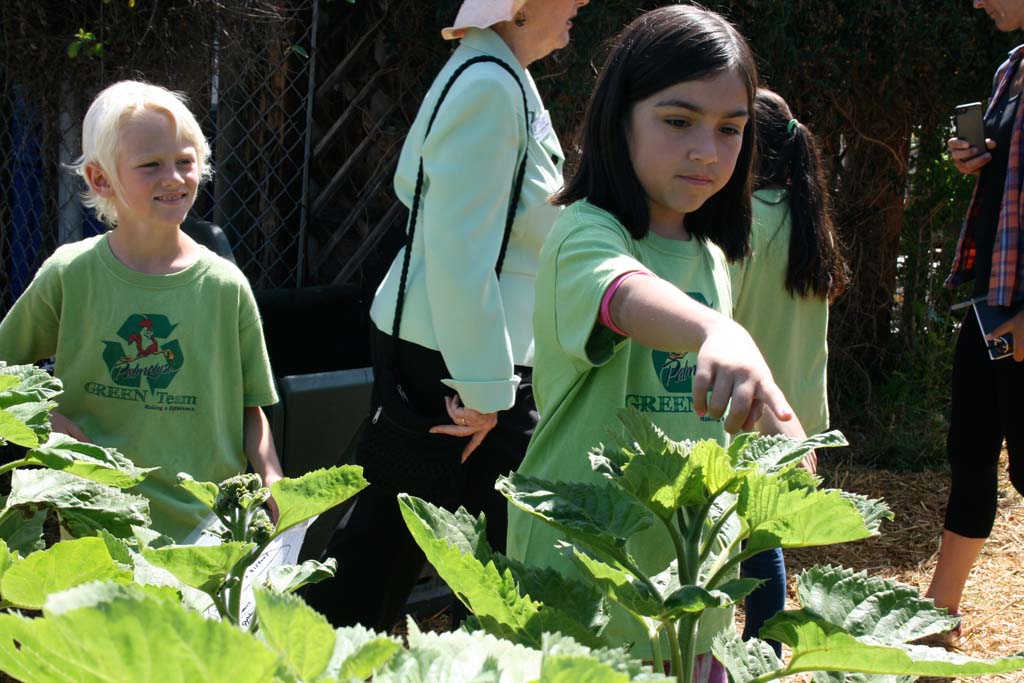OCEANSIDE — Oceanside Unified School District is not simply signing a pledge to reduce waste, but is officially committed to reduce the waste the district produces by 75 percent.
The school district made a commitment to join the city in its focused zero waste efforts on April 11.
The district’s commitment to the Zero Waste Schools Program began with a semester long pilot program launched at a handful of school sites, and the district office.
District staff took the city mini bin challenge that encourages office workers to think and sort before they put waste in the trashcan.
The challenge equips each worker with a desktop mini trashcan and larger recycling container. After a week workers are thinking about how much trash they generate, where they dispose of it, and beginning to reduce office waste.
Pilot school sites had a school-wide trash assessment, to see where waste could be cut, and classroom lessons in waste reduction, recycling and composting.
The city environmental specialist spent four weeks prior to school site implementation with site stakeholders to develop a school-specific environmental education and waste reduction plan, and two weeks on campus delivering instruction.
As part of the program each school forms a student “green team” that keeps recycling, composting, and gardening projects active.
Teachers said the benefits are reduced waste, and learning opportunities.
OUSD is a STEM-E district, which focuses on science, technology, engineering, mathematics, and environmental stewardship.
“The Oceanside Zero Waste Schools Program fosters environmental stewardship, provides hands-on learning opportunities and serves as a platform for Common Core curriculum and STEM-E projects,” Jenna Roripaugh, city environmental specialist, said.
Some school sites already have established gardens.
Palmquist Elementary, which participated in the zero waste pilot program, boasts a quarter-acre irrigated organic garden, composting bins, and solar powered aquaponics to clean water. Third grade teacher Mark Wagner leads gardening efforts that include all students.
Vegetables grown in the thriving school garden are sold at the local farmer’s market and used in school site lunches.
“They’re high quality vegetable that are sold as produce at the Sunset Market, and used in the nutritional services program on site,” Roripaugh said. “The kids take care of this garden.”
Through participating in the zero waste program Palmquist Elementary increased its recycling efforts from 24 percent to 85 percent, saving the school $600 a month on its trash bill.
Some eco-smart lessons were learned, such as purchasing and disposing of recycled materials is more cost effective than purchasing and disposing of environmentally unfriendly Styrofoam.
The zero waste program will continue to be implemented at three to five school sites each semester, with the end goal of reducing waste by 75 percent in all 23 district schools by 2020.
The expected district-wide savings on the trash bill, after full implementation, is $100,000 annually.
There is also a ripple effect from families being involved in school site zero waste projects and implementing the ideas at home.
“We’re creating a cultural change for our community and environment,” Roripaugh said.



